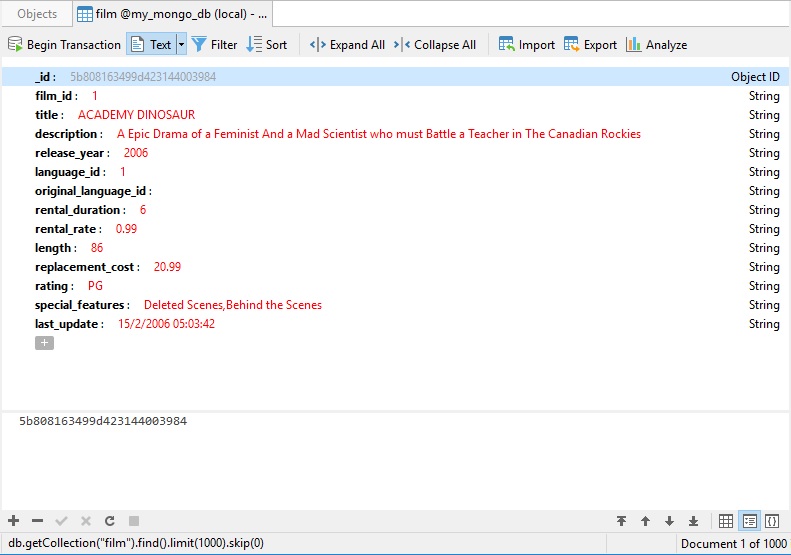
A database view is a virtual or logical table which is comprised of a SELECT query. Much like a database table, a view also consists of rows and columns that you can query against. Most database management systems, including MySQL, even allow you to update data in the underlying tables through the view, but with some caveats. In today's blog, we'll learn what a view is and how to create one for MySQL 8 using Navicat Premium as our client.
Most relational databases - including MySQL, MariaDB, and SQL Server - support stored procedures and functions. Stored procedures and functions are actually very similar, and can in fact be utilized to accomplish the same task. That being said, there are some crucial differences between the two that need to be considered when deciding which to use for a given job. We'll go over these in today's blog
Regular expressions (regex) provide a way to match strings against a pattern so that your searches are "fuzzy" rather than exact. MongoDB comes with a regex engine built in so you can dig up documents even if you don't know exactly what the exact Field value is that you're looking for. In today's blog we'll learn how to use regexes in MongoDB, using Navicat for MongoDB.
Open up any document in a MongoDB database and you'll notice an _id field:

In fact, the ObjectId/_id is the only field that exists across every MongoDB document. In today's blog, we'll explore what it is and why it's important to your MongoDB database.
You've probably heard that column indexing is a great way to optimize query performance by minimizing the number of disk accesses required by the query. MongoDB has a specific application of field indexing called Covered Queries, where all of a query's columns are indexed. Covered Queries are very fast because MongoDB doesn't have to examine any documents apart from the indexed ones. In today's blog, we'll be learning how to use Covered Queries to query data faster.
- 2026 (1)
- February (1)
- January (1)
- Harnessing PostgreSQL Power: An Introduction to Supabase
- The ROI of Database Automation: Quantifying the Business Value of Automated Tuning, Patching, and Optimization
- Database Observability: The New Frontier in Performance Management
- The Database Skills Gap Crisis: Navigating the Shortage of Database Professionals
- The Economics of Multi-Cloud Databases
- 2025 (1)
- December (1)
- November (1)
- October (1)
- September (1)
- August (1)
- Going Beyond Basic Monitoring with Modern Database Observability Platforms
- Privacy-Preserving Databases: Protecting Data While Enabling Access
- Privacy-Preserving Databases: Protecting Data While Enabling Access
- Privacy-Preserving Databases: Protecting Data While Enabling Access
- A Guide to Database Sharding as a Service
- July (1)
- June (1)
- The Rise of Embedded AI/ML Capabilities in Modern Databases
- Immutable Databases: the Evolution of Data Integrity?
- Seamless Information Access Through Data Virtualization and Federation
- Database DevOps Integration: Bridging the Gap Between Development and Operations
- Navicat Sponsors SQLBits 2025 – Supporting the Future of Data Platforms
- May (1)
- Edge Databases: Empowering Distributed Computing Environments
- The Rise of Low-Code/No-Code Database Interfaces: Democratizing Data Management
- Data Vault 2.0: A Modern Approach to Enterprise Data Modeling
- Streaming-First Architectures: Revolutionizing Real-Time Data Processing
- Navicat Proudly Sponsors PGConf.de 2025 as Silver Sponsor (Two Free Tickets Up for Grabs!)
- April (1)
- March (1)
- February (1)
- January (1)
- 2024 (1)
- 2023 (1)
- 2022 (1)
- 2021 (1)
- 2020 (1)
- 2019 (1)
- 2018 (1)
- 2017 (1)














